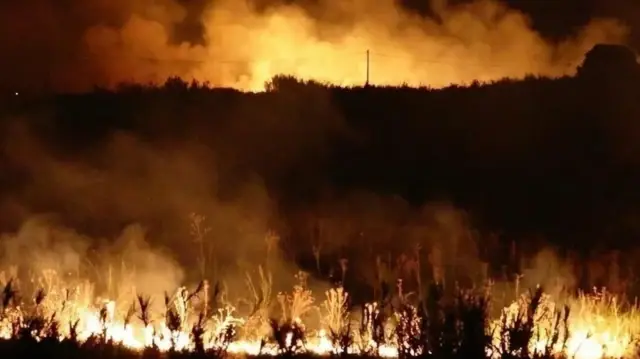Algeria contains widespread wildfires after days of intense blazes

Algerian authorities have announced the full containment of a multi-day wildfire outbreak, with 55 separate fires extinguished across 14 provinces. Firefighting teams remain vigilant, monitoring several high-risk areas for potential flare-ups amid challenging weather conditions.
The Civil Protection Agency confirmed Saturday that firefighters successfully brought under control all reported wildfires that had erupted across northern Algeria. The blazes, which included a significant fire in Tipaza province located west of the capital Algiers, had threatened communities and forested areas. According to the agency's statement, emergency teams battled 55 separate fires across 14 provinces in western, central, and eastern regions of the country since Friday morning. While the immediate threat has passed, officials noted that five hotspots remain under close surveillance due to persistent reignition risks.
Geographical Spread and Response
The wildfire response encompassed multiple regions simultaneously. In the critical Tipaza area, fires were fully extinguished in the forests of Boukhlidja, Amarsha, Bouzoula, Shoula, and Douar al-Ikhwa Marsili, with patrols continuing in some vulnerable zones. Containment was also achieved in western Chlef province; the central provinces of Tizi Ouzou, Medea, Ain Defla, Bouira, and Boumerdes; and the eastern provinces of Bejaia, Jijel, Skikda, Mila, Setif, Souk Ahras, and Tebessa. The coordinated effort prevented further spread despite adverse conditions.
Weather Patterns and Historical Context
The recent fire outbreak was fueled by an unusual heatwave for this time of year, with temperatures in coastal Algiers reaching 31°C (87.8°F) on Thursday - significantly higher than seasonal norms for the Mediterranean region. The country's meteorological service anticipates a noticeable temperature drop in coming days, with rains forecast for Monday and even snow expected later in the week. Algeria has endured a severe drought for over six years, particularly affecting central and western regions. Since 2022, repeated drought conditions have led to unprecedented fire seasons that have claimed dozens of lives, injured hundreds, and destroyed tens of thousands of hectares of forests and vegetation.
Reklam yükleniyor...
Reklam yükleniyor...







Comments you share on our site are a valuable resource for other users. Please be respectful of different opinions and other users. Avoid using rude, aggressive, derogatory, or discriminatory language.